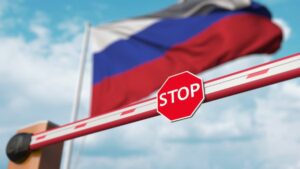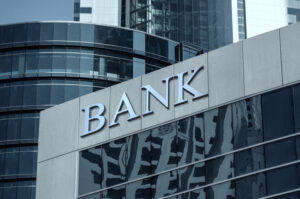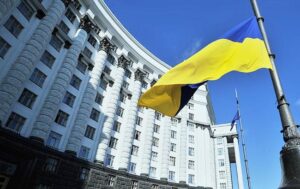
The Cabinet of Ministers has extended the ban on imports of goods originating from Russia into the customs territory of Ukraine until December 31, 2026.
According to Resolution No. 1707 of December 24, the government amended Cabinet Resolution No. 1147 of December 30, 2015, which is updated annually.
In addition, by Resolution No. 1706, the government extended the term of Resolution No. 1146 of December 30, 2015, which establishes import duty rates on goods originating in the Russian Federation, for another year, until December 31, 2026. These instruments have been in effect since 2015 as countermeasures in response to economic pressure that has been going on for many years.
As reported, in 2015, the Cabinet of Ministers adopted two resolutions restricting trade with Russia in response to the actions of the aggressor state against Ukraine, in particular, the unilateral termination by the Russian Federation of the Agreement on the Free Trade Area within the CIS with regard to Ukraine and the introduction of bans on the import of a number of goods of Ukrainian origin from January 1, 2016. The validity of these acts is extended every year in December.

The moratorium on the export of unprocessed timber from Ukraine, which was introduced on November 1, 2015, for 10 years, has been temporarily extended by a decision of the Cabinet of Ministers of Ukraine until the end of the year in the form of a zero export quota.
“At the request of businesses, the government has made an important decision to temporarily ban the export of unprocessed timber. This is a necessary step to take care of people in winter, preserve the work of our enterprises, and reduce the burden on the environment,” Ukrainian Prime Minister Yulia Svyrydenko wrote on Friday on Telegram following her trip to the Rivne region.
She noted that the volume of logging in Ukraine has significantly decreased during the full-scale invasion by the Russian Federation. “Enterprises that could be operating are idle or working at minimum capacity due to a lack of wood. The army needs wood for its own needs. Life in rural communities, where firewood is a key resource for heating in winter, depends on the availability of wood,” the head of government wrote.
In addition, according to Svyrydenko, the war has caused significant damage to the environment, as part of the forests are temporarily occupied or damaged by hostilities. “Therefore, timber exports will create an additional burden on the environment,” the prime minister noted.
“The decision provides for export licensing – a zero quota until the end of the year. We continue to work on further steps to systematically address the timber shortage,” Svyrydenko said.
The head of the State Forest Resources Agency of Ukraine, Viktor Smal, previously told the agency that according to the law adopted in 2015, the moratorium on the export of unprocessed timber of all tree species, except pine (a 10-year moratorium was introduced for pine on January 1, 2017), will end on November 1, 2025.
Smal clarified that the extension of the moratorium for the duration of martial law and for another 10 years after it is provided for in the draft law on the timber market, which is currently being prepared for its first reading.
“In my opinion, 10 years is definitely enough to recover from all these shocks in terms of production and investment,” said the head of the State Forestry Agency.
He believes that the moratorium has been beneficial because a large number of production facilities have expanded and opened in Ukraine. “If we look at the structure of our exports, we will see that the depth of our wood processing leaves much to be desired. We should try to make not boards, not beams, not pallets, but cribs, kitchen chairs, tables, and export them,” Smal added.
As reported, in January-August 2025, Ukraine exported $1,131.3 million worth of wood and wood products, which is 15.5% more than in January-August 2024. However, during the same period, wood and wood products worth $160.5 million were imported, which is 8.8% more than in January-August 2024.
During this period, wood and other fibrous cellulose materials worth $186.2 million were exported (19.1% more than in January-August 2024), and $594.3 million worth were imported (1.7% less than in January-August 2024).

As part of its 19th package of sanctions, the European Union will impose a ban on transactions with five Russian credit institutions from November 12: Alfa Bank, MTS Bank, Absolut Bank, Zemsky Bank, and NKO Istina, according to an EU statement.
In addition, Belarusian Alfa Bank, Sberbank, VTB, Belgazprombank, BelVEB, as well as VTB’s subsidiary in Kazakhstan and VTB’s branch in Shanghai have been added to the EU sanctions list.
BAN, BANK, BELARUS, EUROPEAN UNION, RUSSIAN FEDERATION, SANCTION, TRANSACTION

China has unveiled a new action plan for the steel industry, which includes a set of measures to address the chronic problem of oversupply. This comes amid Beijing’s intensified efforts to end a series of price wars raging in the economy, writes the South China Morning Post.
The plan, which includes a strict ban on the commissioning of additional capacity and measures to accelerate the decommissioning of obsolete equipment, could serve as an example for other industries suffering from overproduction and excessive competition.
The document, published on Monday by the Ministry of Industry and Information Technology in conjunction with a number of other agencies, calls for strict control over steel production capacity and volumes. It stresses that “coordinated efforts on both the supply and demand sides” are needed to stabilize the industry.
The plan aims to “accelerate the transition from old to new growth drivers, develop new productive forces, and further enhance the resilience and security of industrial and supply chains.” The steel industry should strive to increase added value by approximately 4% annually over the next two years and complete the modernization of more than 80% of steel production capacity to achieve ultra-low emissions by the end of this year.
Although Chinese steel companies account for more than half of global production, the average profitability of listed companies in 2024 was minus 0.26% due to structural problems in the industry, the report said.
According to CINDA Securities, 7.44 million tons of five major types of steel products were produced in the country in the first half of September, approximately 5.8% more than in the same period a year earlier. Steel inventories increased by 12.1% to 11.01 million tons, while consumption fell by approximately 4.6% to 8.5 million tons.
The composite steel price index is currently at 3,507 yuan ($493) per ton, which is approximately 2.6% higher than last year’s figure, but approximately 14% lower than in 2023.
In 2024, China reduced steel production by 1.7% to 1.005 billion tons.

The Cabinet of Ministers has adopted a draft law “On Amendments to the Law of Ukraine ‘On Sanctions’ on the Prohibition of the Use of Software Products and Access to Electronic Information Resources,” which, in particular, proposes to ban electronic websites in Ukraine developed by foreign persons subject to sanctions, according to Taras Melnychuk, a representative of the Cabinet of Ministers in the Verkhovna Rada.
According to his message on the telegram channel, “the draft law proposes to amend the Law of Ukraine ‘On Sanctions’ by defining new types of sectoral sanctions, in particular, a ban on the distribution and use of software products on the territory of Ukraine by legal entities whose components originate in a foreign country, which has been sanctioned under the Law of Ukraine “On Sanctions”, or whose developer or copyright holder is a legal entity (individual) resident of such a foreign state or a legal entity whose share in the charter document is foreign, as well as a ban on the use of electronic websites.
In addition, it is proposed to prohibit the use of software products from entities engaged in terrorist activities, or whose developers or copyright holders are foreign legal entities or individuals subject to sanctions.
Sanctions may also be imposed on software products created using the source or object code of software products or their components subject to sanctions; access to electronic information resources on the Internet (web pages, websites, other web resources), electronic communication networks, electronic communication systems, information systems, information and communication systems may be prohibited.